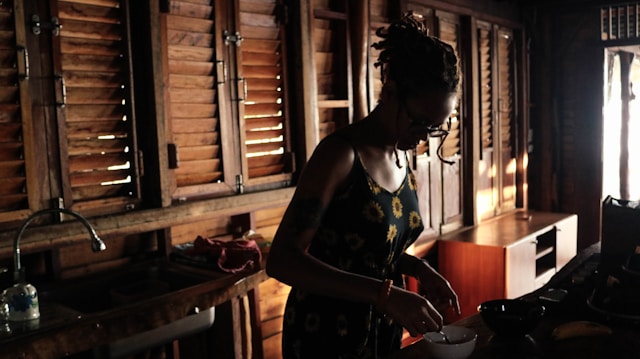
They leave their homeland to earn money for their families, and have no idea they are to be exploited, abused and discriminated against in their new place of residence and work. In Saudi Arabia, unfortunately, it is anything but a one-off for domestic workers from Kenya to be suffering such a fate. Amnesty International is now demanding urgent measures to protect these particularly endangered people.
From Kenya to the Gulf states
Around 4 million people work as domestic workers in Saudi Arabia. They all come from abroad, with around 150,000 from Kenya. Due to rising unemployment in Kenya, the government there encourages young people to seek work in Gulf states. They can earn good money there, while supporting their families from abroad – so goes the promise, at least. Today, Saudi Arabia is one of the most important source countries for money transfers to Kenya.
Not a single day off in two years
In a recently published report by Amnesty, 70 Kenyan women describe their shocking working conditions. They work for up to 16 hours a day, sleep on the floor or in storage rooms, and get hardly anything to eat – or they are forced to eat putrid food. Their employers keep their passports, phones and wages, making prisoners of these women. Many report being shouted at, hit or even raped.
Kafala and modern slavery
This system is made possible by the so-called Kafala system. The system has been criticised for years, particularly since the debate around the working conditions of guest workers during the World Cup in Qatar. Kafala is an employment law sponsorship system used in many Gulf states under which foreign workers are bound to an employer, who then has complete control over their residential status and freedom of movement.
Raped by the father, taunted by the children
The abuses range from verbal humiliation to physical violence, all the way to sexual abuse. Domestic workers are treated with no respect, like second-class citizens. Racism also plays a major role: African women are continually insulted and humiliated because of their origin and the colour of their skin. One woman reports that the children called her “monkey” and that she was the butt of jokes and taunts.

Reforms have no effect

The state seems not to have no interest in what happens in private households. Although new rules were introduced for domestic workers in 2023, these have had no effect whatsoever in practice. There are no checks, and a lack of enforcement. That means employers can mistreat domestic workers without any consequences whatsoever – a system that favours exploitation.
Demand for fundamental change
Amnesty is demanding that the absolutist government of Saudi Arabia introduce clear labour law regulations for domestic workers, independent checks and the abolition of the Kafala system. In addition to this, Kenya should be cooperating closely with Saudi Arabia in order to better regulate recruiting, and ensure that embassies actively support their citizens impacted. The rights of these highly vulnerable people can only be effectively protected through international cooperation.
Translated by Tim Lywood
#Ausbeutung #Sklaverei #Hausangestelle #Kafala #Kenia #SaudiArabien #AgainstHumanTrafficking #GegenMenschenhandel #EndExploitation #EndTrafficking #HopeForTheFuture #Österreich
